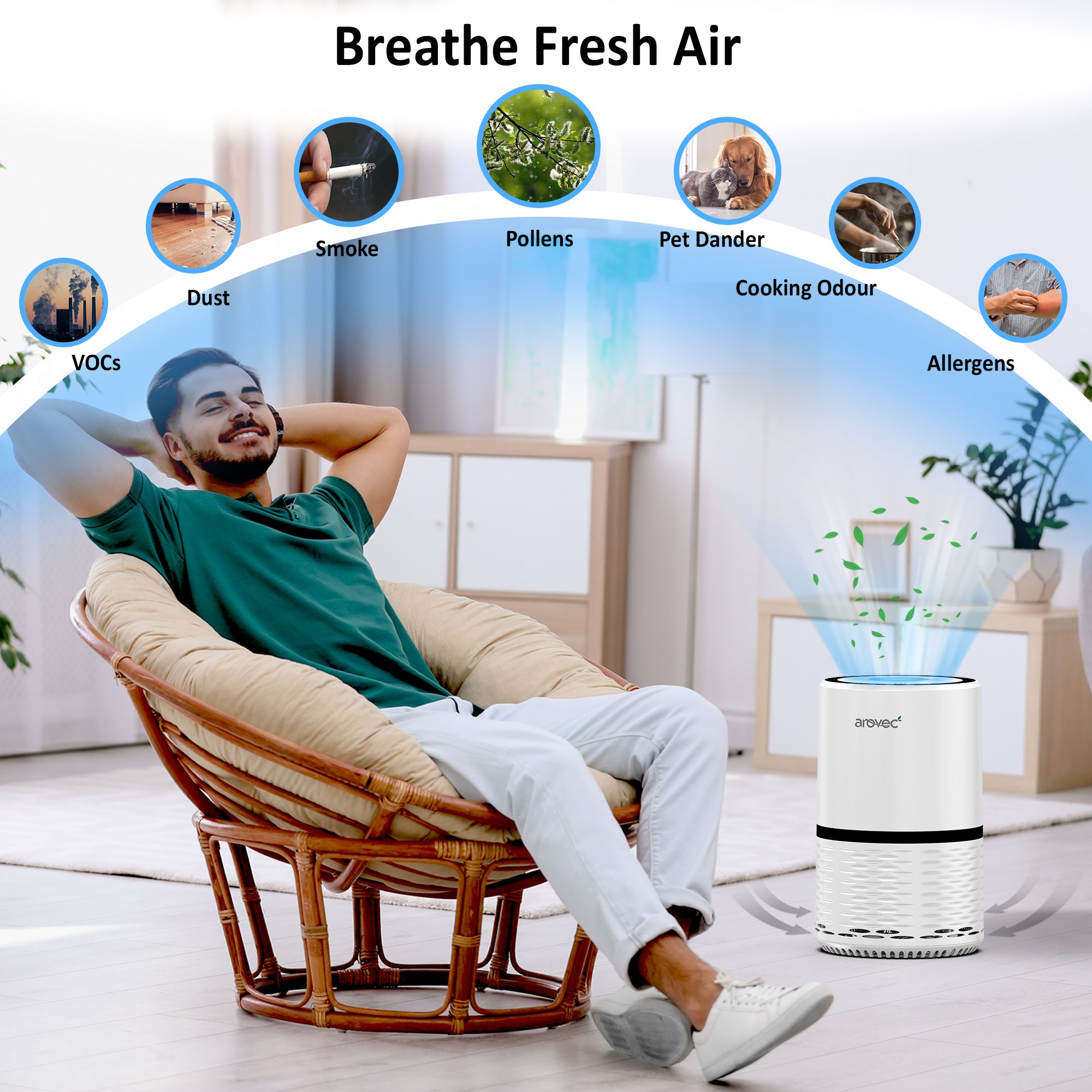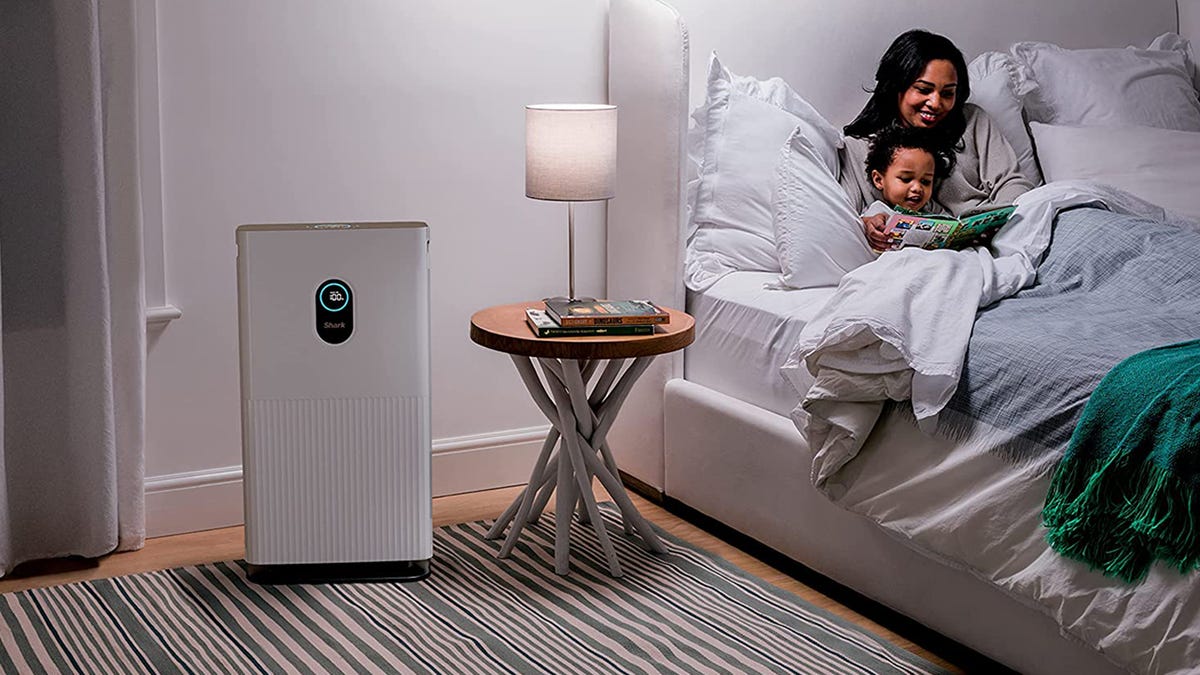Featured
Table of Contents
- – Understanding Allergic Reactions and Triggers
- – Can Air Purifiers Assist With Allergies?
- – The Scientific Research Behind Air Purifiers ...
- – Are Air Purifiers Right for You? Variables to...
- – Maximizing Air Purifiers for Allergies
- – Beyond Air Purifiers: A Multi-Pronged Strategy...
- – Living a Breath Easier Life with Allergies

Air cleansers are commonly promoted as an option, appealing cleaner air and relief from allergy signs. Are air purifiers really worth the investment for allergic reaction patients?
Understanding Allergic Reactions and Triggers
To comprehend the function of air purifiers, let's initial explore allergic reactions and their triggers:
- The Sensitive Action: Allergies occur when your body immune system panics to a safe compound, like pollen or allergen. This reaction causes the release of histamines, causing allergy signs like sneezing, coughing, itchy eyes, and a dripping nose.
- Typical Irritants: Indoor allergens consist of dirt termites, pet dander, mold spores, pollen that drifts inside your home, and even roach allergens. These air-borne bits can aggravate your respiratory tracts and cause allergy signs.
Can Air Purifiers Assist With Allergies?
Air purifiers function by attracting in air, straining contaminants, and launching cleaner air back into the room. Here's how they can potentially profit allergic reaction sufferers:
- Capturing Allergens: HEPA (High-Efficiency Particulate Air) filters, an usual type made use of in air purifiers, are extremely reliable at capturing air-borne allergens like dirt termites, pet dog dander, and pollen. By removing these triggers from the air you breathe, air purifiers can help in reducing allergic reaction signs.
- Improved Air High Quality: Air cleansers can also remove other toxic irritants from the air, such as smoke, dirt, and volatile natural substances (VOCs) This general enhancement in air quality can be useful for allergic reaction victims that are delicate to these extra triggers.
The Scientific Research Behind Air Purifiers and Allergies
Studies have revealed that air cleansers can be handy in reducing allergic reaction signs and symptoms. Right here's a check out some key study findings:
- A 2019 review published in the journal "Existing Allergy and Bronchial asthma Records" ended that air purifiers with HEPA filters can be efficient in minimizing allergy signs and symptoms and improving lifestyle for individuals with sensitive rhinitis (hay fever)
- A 2018 research study published in the journal "Record of Allergy, Asthma & Immunology" discovered that making use of an air purifier with a HEPA filter in the room substantially reduced dirt mite allergen levels and improved sleep high quality in people with bronchial asthma.
However, it's crucial to keep in mind that research study also recommends some constraints:
- Air Purifier Insurance Coverage: Air cleansers are most effective in the area where they are put. Their impact on allergens in various other components of the house may be very little.
- Seriousness of Allergies: While air cleansers can aid, they may not be a complete service for extreme allergies. Medications and other allergy administration techniques might still be needed.
Are Air Purifiers Right for You? Variables to Think About
Right here are some crucial aspects to consider when making a decision if an air purifier deserves it for your allergic reactions:
- Severity of Allergies: If your allergies are mild and well-controlled with medicine, an air purifier could not be required. Nevertheless, for those with moderate to serious allergic reactions, an air purifier can be a useful tool in taking care of signs.
- Kinds of Irritants: Consider the primary triggers for your allergies. Air cleansers are most effective for airborne allergens like allergen, pet dander, and plant pollen. They might not be as handy for allergens like mold and mildew that expand on surfaces.
- Lifestyle and Atmosphere: If you have family pets, reside in an area with high pollen matters, or have issues regarding interior air quality, an air purifier can be advantageous.

Maximizing Air Purifiers for Allergies
If you decide to buy an air purifier for allergic reactions, below are some tips for optimizing its performance:
- Select a HEPA Filter: Search for an air purifier with a HEPA filter licensed to capture bits as small as 0.3 microns.
- Right Size for the Room: Ensure the air purifier has a Clean Air Delivery Price (CADR) that appropriates for the size of the room you plan to use it in.
- Placement Issues: Place the air purifier in the room where you spend one of the most time, such as your bedroom.
- Regular Filter Maintenance: Change HEPA filters according to the manufacturer's guidelines to maintain optimal efficiency.
- Incorporate with Other Methods: Air purifiers are not a one-size-fits-all service. Integrate them with various other allergic reaction monitoring strategies like medication, regular cleansing, and allergen-proof bed linens.
Beyond Air Purifiers: A Multi-Pronged Strategy to Allergic Reaction Monitoring

While air purifiers can be a beneficial device in your allergy collection, they are not a miracle drug (If you're looking to buy an Air Purifier then Air Cleaners Australia is the best destination.). An extensive technique that integrates air filtration with other methods is crucial to attaining lasting allergy alleviation. Right here are some additional approaches to take into consideration:
- Medicine: Antihistamines, decongestants, and nasal corticosteroids, suggested by your medical professional, can efficiently take care of allergy symptoms.
- Allergy Testing and Immunotherapy: Recognizing your particular irritants via allergy testing can lead the way for immunotherapy, a treatment that assists desensitize your body immune system to allergens over time.
- Air Top Quality Management: Regular cleaning with a HEPA-filtered vacuum and allergen-specific cleansing items can substantially reduce allergen, family pet dander, and other allergens in your house.
- Managing Humidity: Mold and mildew prospers in moist settings. Utilizing a dehumidifier can assist manage moisture degrees and stop mold and mildew growth, an usual indoor irritant.
- Way of living Adjustments: If you have hatreds plant pollen, remaining indoors during height pollen seasons and showering after hanging out outdoors can help reduce exposure.
- Bed linen and Surface Areas: Encasing cushions and mattresses in allergen-proof covers can significantly lower allergen exposure. Regularly cleaning bedding in hot water assists eliminate allergens.
Living a Breath Easier Life with Allergies
Remember, taking care of allergies is a continuous process. By understanding your triggers, implementing a multi-pronged approach, and possibly integrating an air purifier right into your strategy, you can dramatically decrease allergy signs and symptoms and breathe much easier.
Added Considerations:
- Consulting a Medical professional: If your allergies are severe or not well-controlled with medication and way of life adjustments, seek advice from a specialist for tailored referrals.
- Air High Quality Surveillance: Consider making use of an air high quality screen to track allergen levels in your home and change your management techniques as necessary.
- Long-Term Investment: A top quality air purifier can be a long-term financial investment in your health and wellness and wellness.
By taking a proactive method and embracing a combination of these approaches, you can develop a healthier and allergy-friendly setting, enabling you to delight in a breath less complicated life.
Table of Contents
- – Understanding Allergic Reactions and Triggers
- – Can Air Purifiers Assist With Allergies?
- – The Scientific Research Behind Air Purifiers ...
- – Are Air Purifiers Right for You? Variables to...
- – Maximizing Air Purifiers for Allergies
- – Beyond Air Purifiers: A Multi-Pronged Strategy...
- – Living a Breath Easier Life with Allergies
Latest Posts
Comprehending the Transition: Why Pymble is Phasing Out Gas
Understanding the Transition: Why Pymble is Phasing Out Gas
Battling the Mold Hazard: Are Air Purifiers Well Worth It?
More
Latest Posts
Comprehending the Transition: Why Pymble is Phasing Out Gas
Understanding the Transition: Why Pymble is Phasing Out Gas
Battling the Mold Hazard: Are Air Purifiers Well Worth It?